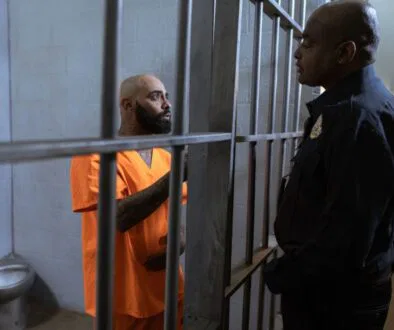How Long Does It Take to Get a Court Date for Felony?

Published January 14, 2022
A criminal case begins with an arraignment, which is the first formal court appearance. Arrests for felony charges must typically occur within 48 hours of the defendant’s arrest if he or she is being held in prison. If the defendant is not detained, the proceedings must normally proceed “without unnecessary delay.”
Arrest is at the stage of the criminal court process during which:
- Defendants are advised of their constitutional rights by the court
- They are informed of the specific charges against them
- A plea is entered (including a guilty plea) by the accused
- Bail is set, modified, reinstated, or acquitted by the court
In terms of the trial date, both the United States Constitution and the state constitutions provide defendants with the right to a speedy trial. For felonies, this implies that defendants have the right to have their case tried within 60 days of their arraignment.
When is an accused first called to court in felony cases?
In the criminal justice system, an arraignment is a defendant’s first formal court appearance. It happens in criminal situations and is the first appearance in court for a defendant after an arrest.
In felony instances, if the defendant commits an offense that requires continued detention, most jurisdictions require the offender to be arraigned within 48 hours of arrest. This period excludes weekends and federal holidays.
If an unreasonable delay occurs between an arrest and an arraignment of a defendant, the delay may turn from an otherwise valid arrest into unlawful detention.
Unlawful detention is the sort of potential police wrongdoing for which the accused may be entitled to legal (or monetary) damages.
However, it is worth noting that unlawful detention does not always result in the dismissal of the lawsuit unless:
- It was proved that the defendant couldn’t get a fair trial because of the delay.
- He/she otherwise suffered some sort of unfair injury or prejudice as a result.
If an accused is being arraigned on a felony charge that does not necessitate the defendant to stay in custody, most states mandate that the defendant be arraigned without undue delay. In actuality, if custody is not an issue in a case, an arraignment may take weeks or even months.

ADVERTISEMENT
When does an arraignment take place?
Arraignment hearings are held in both misdemeanor and felony cases.
Judges utilize these hearings to:
- Inform defendants of their constitutional rights
- Provide specific information about the charges against the defendants
- Accept a plea agreement from an accused
- Set, alter, or remove bail for an accused
Concerning a defendant’s constitutional rights, it is worth noting that both the United States Constitution and state constitutions provide defendants with a slew of rights that they may apply during their arraignment and throughout a criminal court case.
How long does it take to get a court date for a felony?
The United States Constitution’s Sixth Amendment, as well as all state constitutions, grant defendants the right to a speedy trial.
The right to a speedy trial is the right to a jury trial within a reasonable amount of time after the start of criminal prosecution.
In felony proceedings, this right requires that a defendant be tried within 60 days of the date of either:
- The arraignment
- reinstatement of a previously dismissed case (reestablishing the case after it is dismissed)
- New trial granted after a mistrial
However, a defendant may forgo this right or agree to a court date that is more than 60 days away. It is frequently in the defendant’s best interest to postpone a trial since the delay allows defense counsel additional time to gather evidence and refute the prosecuting attorney’s arguments.
Reduce Your Jail Call Costs By Up To 90% Per Minute With GlobalTel
GlobalTel’s inmate calling service lowers jail call per minute rates by up to 90% for jail calls from US facilities. Sign up now and use the special jail call phone number we create for you to eliminate the long distance jail call fees. Try GlobalTel for only $45.99 for 90 days. Make US/domestic and international jail calls at the local rate and stay connected to your incarcerated loved ones for less. Learn more about how to sign up for calls from inmates here.

This Content Is Fact Checked
Our esteemed team of specialists has thoroughly validated the accuracy of this information. Discover further details about the rigorous editorial guidelines for our website here.
ADVERTISEMENT

About The Author
Krizzia Paolyn is an SEO Specialist with a bachelor’s degree in Psychology. It has always been her passion to share her voice, and at the same time, to encourage other people to speak up.




